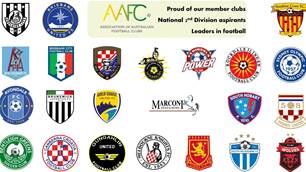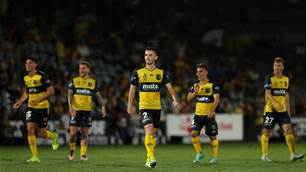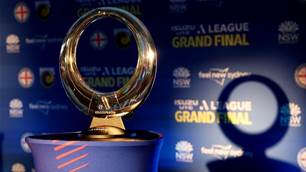Central Coast Mariners chief Richard Peil has revealed his wish-list to enhance the quality and viability of the A-League - stop playing games in extreme heat, urgently improve the level of officiating and instigate an internal fee-paying transfer system.
The heat issue surfaced at the weekend with Western United coach John Aloisi speaking out after his side’s 2-2 draw in a 5pm kick-off against Macarthur in searing conditions at Campbelltown Stadium.
“Football people who play and coach aren’t listened to,” Aloisi said, adding the fixture was just below the point of postponement prior to kick-off.
Elsewhere, two Western United players were treated by medical staff after their 5-0 away win at Canberra United, which started at 3pm on Saturday when temperatures were 35C.
In response, Professional Footballers Australia (PFA) is seeking talks with the Australian Professional Leagues (APL) to avoid more afternoon kick-offs in baking summer conditions.
“We can’t keep asking players to play in extreme heat and expect them to produce the quality of game the fans demand,” Peil told FTBL.
“I’ve waited a while to get accurate statistics and it’s not uncommon for a player to cover 2km less playing at 3pm in the afternoon as opposed to 7.45pm.
“It really does effect the speed of the game. I know people say the South Americans play in extreme conditions but we’re not South Americans.
“The exciting games you see in Australia always have speed associated with them, and when we’re forcing players to perform in conditions they find hard to adapt to then we’re destroying the quality of the game, is unfair and in some circumstances probably dangerous.
“I don’t know if the solution is late kick offs. Or, if it was up to me, I’d switch to a winter calendar and take rugby league and AFL head-on.
“For the next decade junior football is only going to expand and we’re going to have more people wanting to watch the sport.
“I’m all for a longer season and I think we do need to get to 16 teams with a 30-game per season competition. The off-season is currently too long for professional sports people.
“Having said all that, I think the competition is substantially better than it’s given credit for. The fact that someone like Kye Rowles can go over and be very dominant in Scotland is proof of that.”
Peil, whose Mariners side are flying high in second spot, understands the complexity of TV scheduling but insists that quality football will remain compromised under the current broadcast arrangements.
“We don’t play the tiki-taka game of the Latins and we don’t have the ability to do that. We need to play to our strengths,” he added.
Peil is also perturbed by the level of officiating in the competition, describing it as “average at best”.
“I could put together a lengthy clip of bewildering decisions across the competition this year - quite a few of which have affected us,” he said.
“The same people who are making these decisions are officiating week after week without any fallout from poor performances.
“I know they’re human and that people make mistakes. But it seems like the same mistakes are being made over and over.
“In the NRL if a ref has a stinker he’s in reserve grade for the next few weeks. I long for the day when we have robots and artificial intelligence refereeing games but until then we need to find a way that avoids the people in the middle being the focal point of a sporting event.
“We’re currently a long way from that, and I don’t think that a lot of highly questionable VAR interpretations of lots of key moments have helped either.”
The introduction of a European-style transfer system across the A-League is vital to help finance the game far into the future, Peil believes.
“As things stand we’re forced to sell overseas - there has to be the ability to do internal deals also,” he insisted.
“We can’t currently charge fees between A-League clubs but, for me, that needs to change.
“I know there are complexities around the salary cap and not every chairman is in favour but I think it has to come in.
“Otherwise we’ll continue to lose players overseas who maybe aren’t quite ready to make that jump yet and could do with more time to grow and develop in the A-League.
“Some would be better with a different experience within the local competition before moving offshore. We need to explore every avenue to try and make this happen.
“With the Mariners, for example, we have to sell a million dollars of talent each year to survive. That means we're forced ti sell our best players overseas which weakens the league.”
Copyright ©FTBL All rights reserved.
Related Articles

Second Division timing 'dangerous' to A-League, warns Mariners boss

'A new beginning': Mariners chief sees bright side of A-Leagues slash and burn operation













